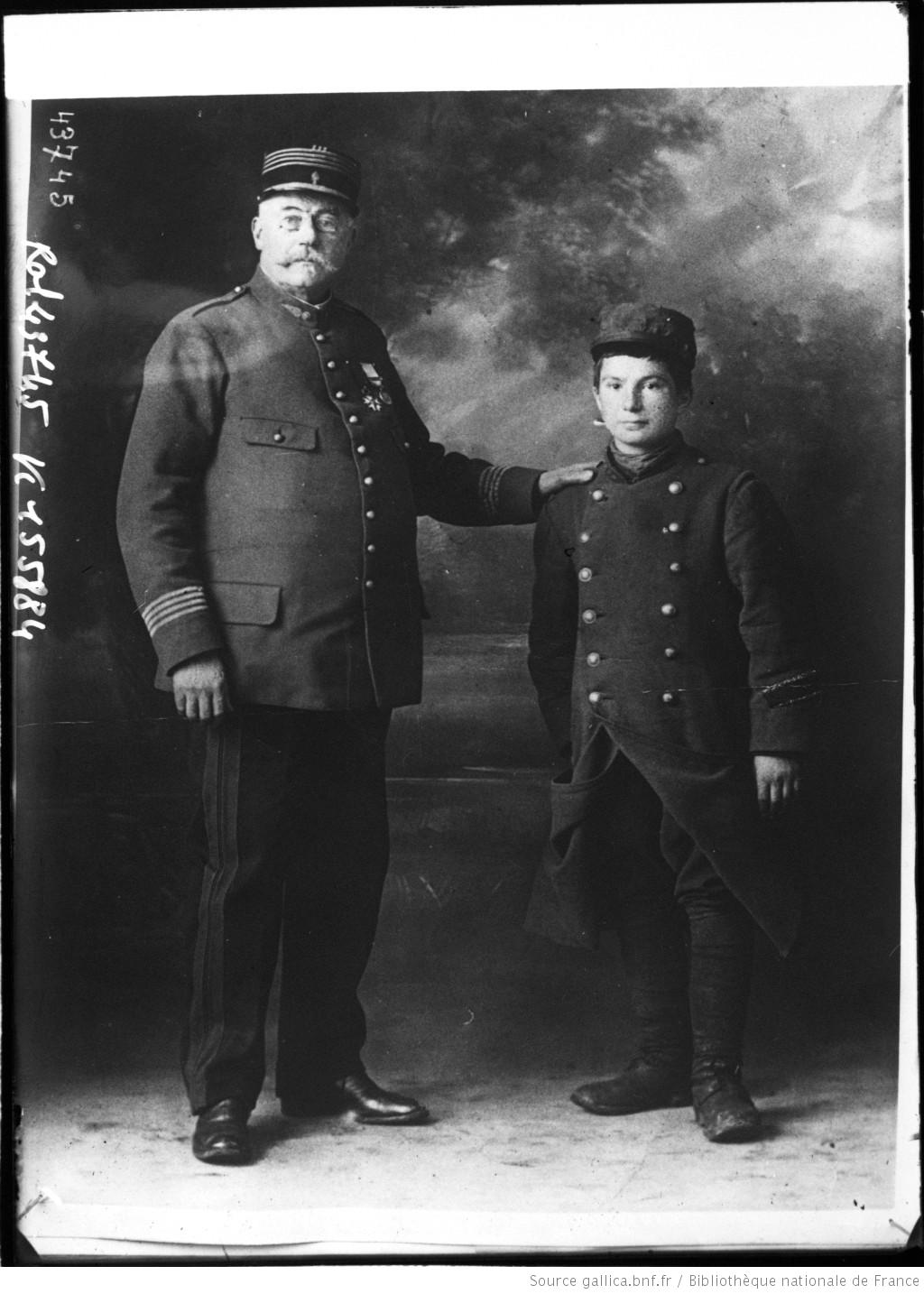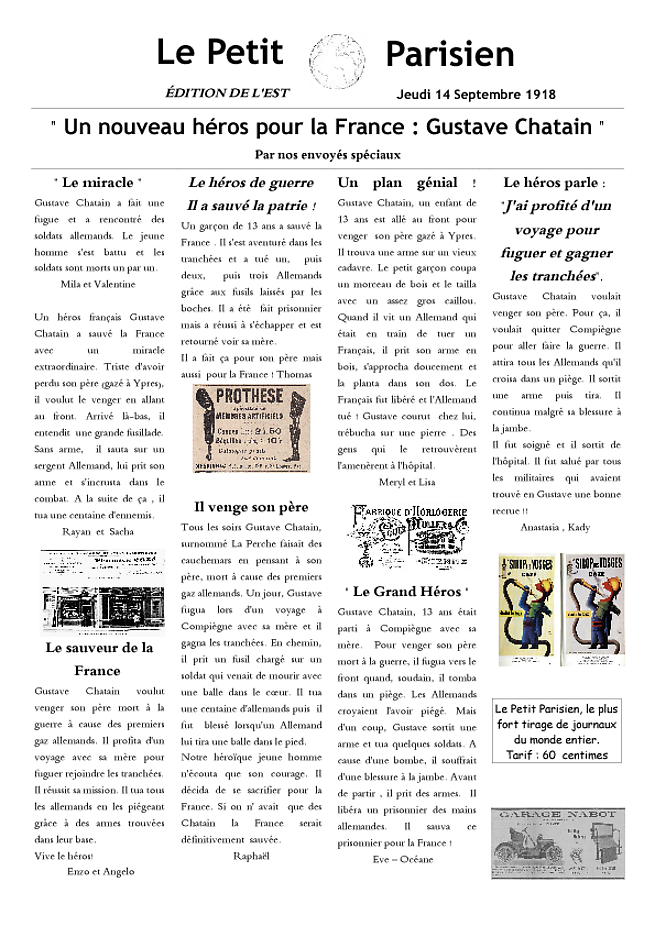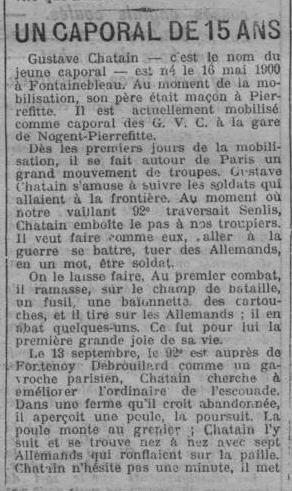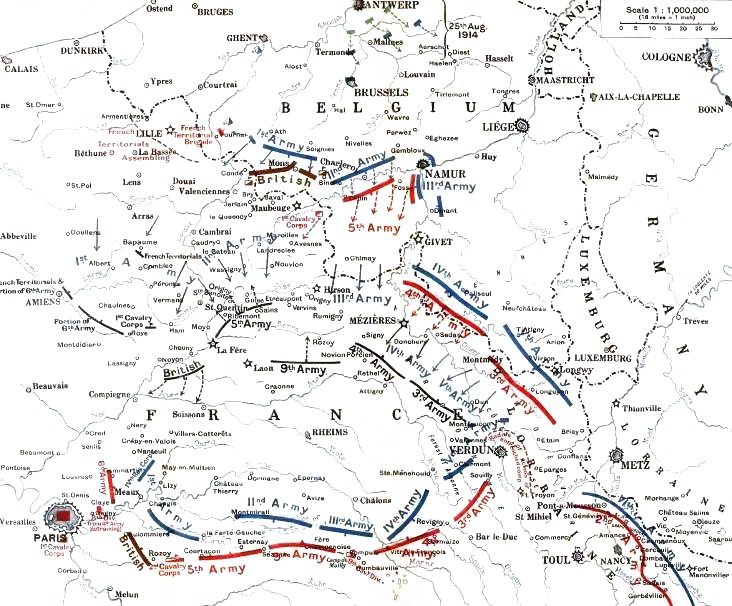My near 80 year old mother remembers having this poem recited to her by her mother as a young girl. She remembers a great deal but there are some gaps. Is anyone able to place it in context or provide more information? We suspect it dates to World War I era. The following is an incomplete and possibly inaccurate transcription of her memory. In particular, was Senlis surrounded by an area with the pronunciation of Ardefine at the time?
Swinging through Senlis, in Ardefine
comes a French regiment of the line,
among the people who cheer for joy,
is Gustav Chetaine, the gardener’s boy.
Now Gustav, who stands just four foot three,
wishes that he might a soldier be,
but Ah! My lad you’re not yet fit,
being only 14 years and a bit.
On go the troops, if you look you’ll find,
the gardener’s boy still lurks behind,
on to the station, he’s there again,
he smuggles onto the soldier’s train.
Brave lads, they’re loathe to part with him yet,
they think to make him the Regiment’s pet,
but that is a role he must decline,
no pet, but a soldier of the line.
They get to the front, (with the gardener’s boy)
to a little village near Fontenoy,
where a maid with streaming eyes,
cries “save me, save me, the foemen are near (nigh)”.
???
???
???
???
Into the camp which was all astir,
Gustav reports, “Seven prisoners, Sir”!
Forced to swallow their bitter cup,
their heads hang down and their hands go up.
When they ask what his reward should be,
“Please make me a soldier”, said four foot three.
There on the spot the deed was done,
Such soldiers they need, so they made him one.
Twice he was wounded with shot and steel,
just to return when his wounds should heal,
???
???
Then comes his Colonel to (the) hospital,
gives him his stripes as a corporal,
???
???
and the badge of honour shall shortly be,
pinned to the breast of four foot three!



